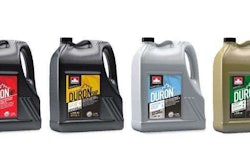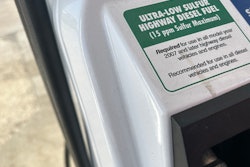Diesel engine oil additives are popular add-on layers of protection, but many of their cornerstone benefits are already engineered into base lubricants.
Brian Humphrey, OEM technical liaison for Petro-Canada Lubricants, says oil additives can make up between 10 and 20 percent of a heavy-duty lubricant that has been validated to engine OEM-approved standards.
“Adding additional [aftermarket] additives to an engine oil could unbalance the additive system, resulting in detrimental side effects and potentially invalidating the engine manufacturer’s warranty,” he says.
Before selecting or adding a supplemental additive, Bell Performance Technical Sales Director Erik Bjornstad says it’s important to understand the level of protection already provided by standard oil “to avoid getting suckered into buying something that you don’t really need.”
Bjornstad says current generation advanced oils already contain viscosity modifiers, anti-oxidants, dispersants, acid neutralizers, anti-wear agents and detergents.
“Over the life of the oil, some of these get used up. Part of the reason to change the oil is that the oil has lost the protective aspect of whatever the given additive component was imparting to it, so you need to replenish that by changing out the old oil for fresh oil with a fresh set of additives,” he says. “The value for using an oil additive would be whether it contains these kind of components that would be replenished, improving or extending the protecting of the oil.”
Shell Lubricants Global OEM Technical Manager of Dan Arcy, noting the company spends “millions and millions of dollars” on oil formulation, development and testing, says Shell Rotella doesn’t recommend adding additives off-the-shelf to its products.










